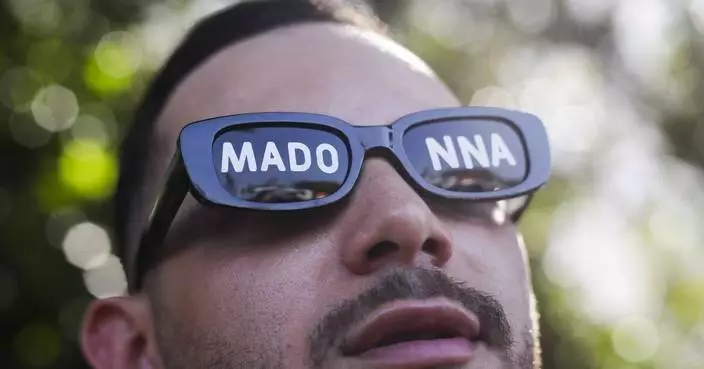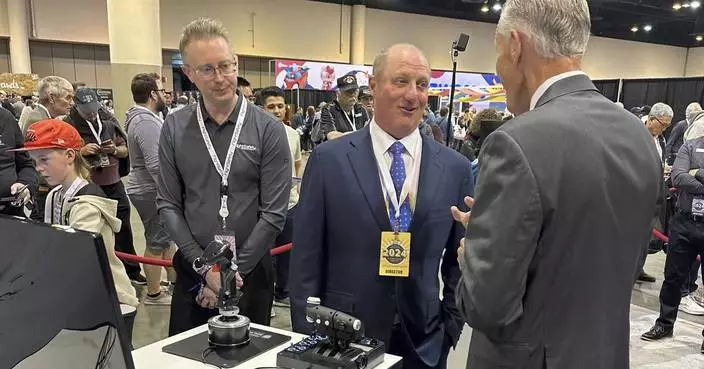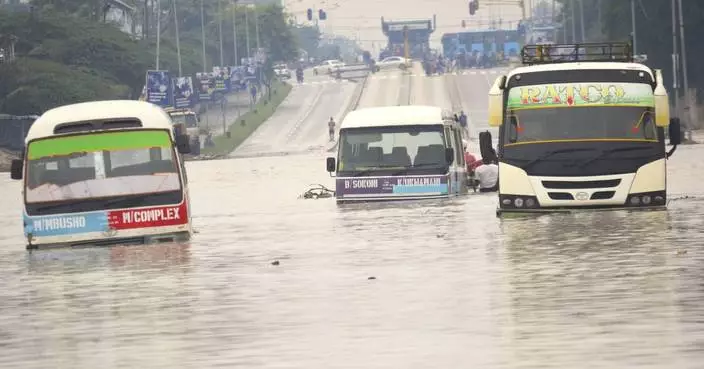UNITED NATIONS (AP) — Russia on Wednesday vetoed a U.N. resolution sponsored by the United States and Japan calling on all nations to prevent a dangerous nuclear arms race in outer space, calling it “a dirty spectacle” that cherry picks weapons of mass destruction from all other weapons that should also be banned.
The vote in the 15-member Security Council was 13 in favor, Russia opposed and China abstaining.
The resolution would have called on all countries not to develop or deploy nuclear arms or other weapons of mass destruction in space, as banned under a 1967 international treaty that included the U.S. and Russia, and to agree to the need to verify compliance.
U.S. Ambassador Linda Thomas-Greenfield said after the vote that Russian President Vladimir Putin has said Moscow has no intention of deploying nuclear weapons in space.
“Today’s veto begs the question: Why? Why, if you are following the rules, would you not support a resolution that reaffirms them? What could you possibly be hiding,” she asked. “It’s baffling. And it’s a shame.”
Russia’s U.N. Ambassador Vassily Nebenzia dismissed the resolution as “absolutely absurd and politicized,” and said it didn’t go far enough in banning all types of weapons in space.
Russia and China proposed an amendment to the U.S.-Japan draft that would call on all countries, especially those with major space capabilities, “to prevent for all time the placement of weapons in outer space, and the threat of use of force in outer spaces.”
The vote was 7 countries in favor, 7 against, and one abstention and the amendment was defeated because it failed to get the minimum 9 “yes” votes required for adoption.
The U.S. opposed the amendment, and after the vote Nebenzia addressed the U.S. ambassador saying: “We want a ban on the placement of weapons of any kind in outer space, not just WMDs (weapons of mass destruction). But you don’t want that. And let me ask you that very same question. Why?”
He said much of the U.S. and Japan’s actions become clear “if we recall that the U.S. and their allies announced some time ago plans to place weapons … in outer space.”
Nebenzia accused the U.S. of blocking a Russian-Chinese proposal since 2008 for a treaty against putting weapons in outer space.
Thomas-Greenfield accused Russia of undermining global treaties to prevent the spread of nuclear weapons, irresponsibly invoking “dangerous nuclear rhetoric,” walking away from several of its arms control obligations, and refusing to engage “in substantive discussions around arms control or risk reduction.”
She called Wednesday’s vote “a real missed opportunity to rebuild much-needed trust in existing arms control obligations.”
Thomas-Greenfield’s announcement of the resolution on March 18 followed White House confirmation in February that Russia has obtained a “troubling” anti-satellite weapon capability, although such a weapon is not operational yet.
Putin declared later that Moscow has no intention of deploying nuclear weapons in space, claiming that the country has only developed space capabilities similar to those of the U.S.
Thomas-Greenfield said before the vote that the world is just beginning to understand “the catastrophic ramifications of a nuclear explosion in space.”
It could destroy “thousands of satellites operated by countries and companies around the world — and wipe out the vital communications, scientific, meteorological, agricultural, commercial, and national security services we all depend on,” she said.
The defeated draft resolution said “the prevention of an arms race in outer space would avert a grave danger for international peace and security.” It would have urged all countries carrying out activities in exploring and using outer space to comply with international law and the U.N. Charter.
The draft would have affirmed that countries that ratified the 1967 Outer Space Treaty must comply with their obligations not to put in orbit around the Earth “any objects” with weapons of mass destruction, or install them “on celestial bodies, or station such weapons in outer space.”
The treaty, ratified by some 114 countries, including the U.S. and Russia, prohibits the deployment of “nuclear weapons or any other kinds of weapons of mass destruction” in orbit or the stationing of “weapons in outer space in any other manner.”
The draft resolution emphasized “the necessity of further measures, including political commitments and legally binding instruments, with appropriate and effective provisions for verification, to prevent an arms race in outer space in all its aspects.”
It reiterated that the U.N. Conference on Disarmament, based in Geneva, has the primary responsibility to negotiate agreements on preventing an arms race in outer space.
The 65-nation body has achieved few results and has largely devolved into a venue for countries to voice criticism of others’ weapons programs or defend their own. The draft resolution would have urged the conference “to adopt and implement a balanced and comprehensive program of work.”
At the March council meeting where the U.S.-Japan initiative was launched, U.N. Secretary-General António Guterres warned that “geopolitical tensions and mistrust have escalated the risk of nuclear warfare to its highest point in decades.”
He said the movie “Oppenheimer” about Robert Oppenheimer, who directed the U.S. project during World War II that developed the atomic bomb, “brought the harsh reality of nuclear doomsday to vivid life for millions around the world.”
“Humanity cannot survive a sequel to Oppenheimer,” the U.N. chief said.

United States Ambassador and Representative to the United Nations Linda Thomas-Greenfield addresses members of the U.N. Security Council before voting during a meeting on Non-proliferation of nuclear weapons, Wednesday, April 24, 2024 at United Nations headquarters. (AP Photo/Eduardo Munoz Alvarez)

FILE - U.S. Ambassador to United Nations Linda Thomas-Greenfield speaks on Thursday, April 18, 2024, in Tokyo. The U.N. Security Council is set to vote Wednesday, April 24, 2024, on a resolution announced by Thomas-Greenfield, calling on all nations to prevent a dangerous nuclear arms race in outer space. It is likely to be vetoed by Russia. (AP Photo/Eugene Hoshiko, Pool, File)
LONDON (AP) — London Mayor Sadiq Khan has a lot of cleaning up to do.
Khan, who made history Saturday by becoming the city's first mayor elected to a third term, has pledged to make the River Thames swimmable.
It wasn't a top campaign issue but it's an audacious goal considering the waterway was declared biologically dead not long before his birth in the city in 1970 and flows as an open sewer of sorts when heavy rains overwhelm London's ancient plumbing system.
Taming the Thames would not be Khan’s first swim upstream. His narrative is built around overcoming the odds.
As he frequently points out, he is the son of a bus driver and a seamstress from Pakistan. He grew up in a three-bedroom public housing apartment with seven siblings in South London. He attended a rough school and went on to study law. He was a human rights attorney before he was elected to Parliament in 2005 as a member of the center-left Labour Party, representing the area where he grew up.
In 2016, he became the first Muslim leader of a major Western capital city, overcoming an opponent whose mayoral campaign was “at least somewhat Islamophobic,” said Patrick Diamond, a public policy professor at Queen Mary University of London.
“It was seen as an affirmation of him in terms of his status as a leading Muslim politician, but also as an affirmation of London in terms of its diversity, its liberalism, its cosmopolitanism,” Diamond said. “That was significant in a country which doesn’t historically have a very strong track record for having diversity in its senior politicians.”
Khan has faced subtle and overt discrimination throughout his career due to his ethnicity and religion. Some of the sharpest barbs have come from former President Donald Trump, who has feuded with him since Khan assailed Trump's campaign pledge in 2015 to ban Muslims from entering the U.S.
During a campaign rally Wednesday in Wisconsin, Trump said London and Paris were “no longer recognizable” after they “opened their doors to jihad.”
Khan, who has referred to Trump as the “poster boy for racists,” responded by saying Thursday's election was a chance to "choose hope over fear and unity over division.”
“One of the things that he does incredibly well, and I would defy anyone to disagree with this, is representing London’s different and diverse communities,” said Jack Brown, a lecturer in London studies at King's College London. “He hasn’t got absolutely everything right, but he is kind of a bringer together of different communities.”
Khan, who was ahead of the national Labour Party in calling for a cease-fire in Gaza, has taken a lot of flak for large pro-Palestinian marches in the city since the Israel-Hamas war. But he's also known for speaking out against antisemitism and for building bridges with Jewish leaders, Brown said.
Despite his success at the polls, Khan is not an incredibly popular mayor. He’s been blamed for a lot of problems, many of which are beyond his control.
The mayor of London doesn’t have the authority of mayors in Paris or New York because power is shared with the city’s 32 boroughs and the financial district.
Khan has a 20-billion-pound ($25 billion) budget that primarily goes on transport, policing and working with councils and developers to achieve his affordable housing targets that he has fallen far short of meeting. Borough councils are responsible for schools, rubbish collection, social services and public housing.
His time in office has been overshadowed by crises: first the U.K.'s break from the European Union that weakened London's thriving financial services industry, and then the COVID-19 pandemic, which led to a cost-of-living crisis.
He has touted measures he put in place such as freezing rail and bus fares and providing free meals for all primary school pupils among his biggest achievements.
Khan has deflected a lot of criticism by blaming his difficulties on a Conservative government that has impeded his plans. He said a projected win by Labour in a national election later this year would change his fortunes.
“For too long we’ve had a government that appears to be anti-London, that thinks the way to level up our country, to make it more equal, is make London poorer,” Khan told The Associated Press. "And that’s cutting off its nose to spite its face.”
But Diamond said a Labour government will face the same fiscal problems as the current administration and is unlikely to suddenly make Khan's life easier.
“You can’t always play the party politics card,” Diamond said. “The general sense in London is that Sadiq Khan does that too often. Or you can blame the Conservative government once or twice, but if it’s your only message, I think people maybe get a little bit tired and switch off to some extent.”
Khan has been criticized by opponents for a rise in crime — particularly incidents involving knives. He has responded by pledging more support for programs that work with youths to prevent crime while blaming government funding cuts.
In the outer suburbs, Khan has come under fire for expanding the city’s Ultra Low Emission Zone that fines drivers of more-polluting older cars 12.50 pounds (about $16) a day. Although the policy was introduced in central London by his predecessor, Boris Johnson in 2015, it has widely been attributed to Khan because of its unpopular expansion, though it only applies to a small fraction of vehicles.
His main opponent, Susan Hall, a London Assembly member, had vowed to “stop the war on motorists” and scrap the program on her first day in office if elected.
Khan, who has made cleaning up London's air pollution a personal mission since he developed asthma as an adult, considers those efforts among his biggest wins.
Making the Thames swimmable in the next decade would expand his mission from clean air to clean water. Brown said that might be a more tangible achievement — given that air pollution is often invisible — but it's probably not something that won over a lot of voters.
“I don’t think many Londoners are calling out for a dip in the Thames, but why not?" Brown said. "You know, green policy’s all good."
Associated Press writer Jill Lawless contributed.
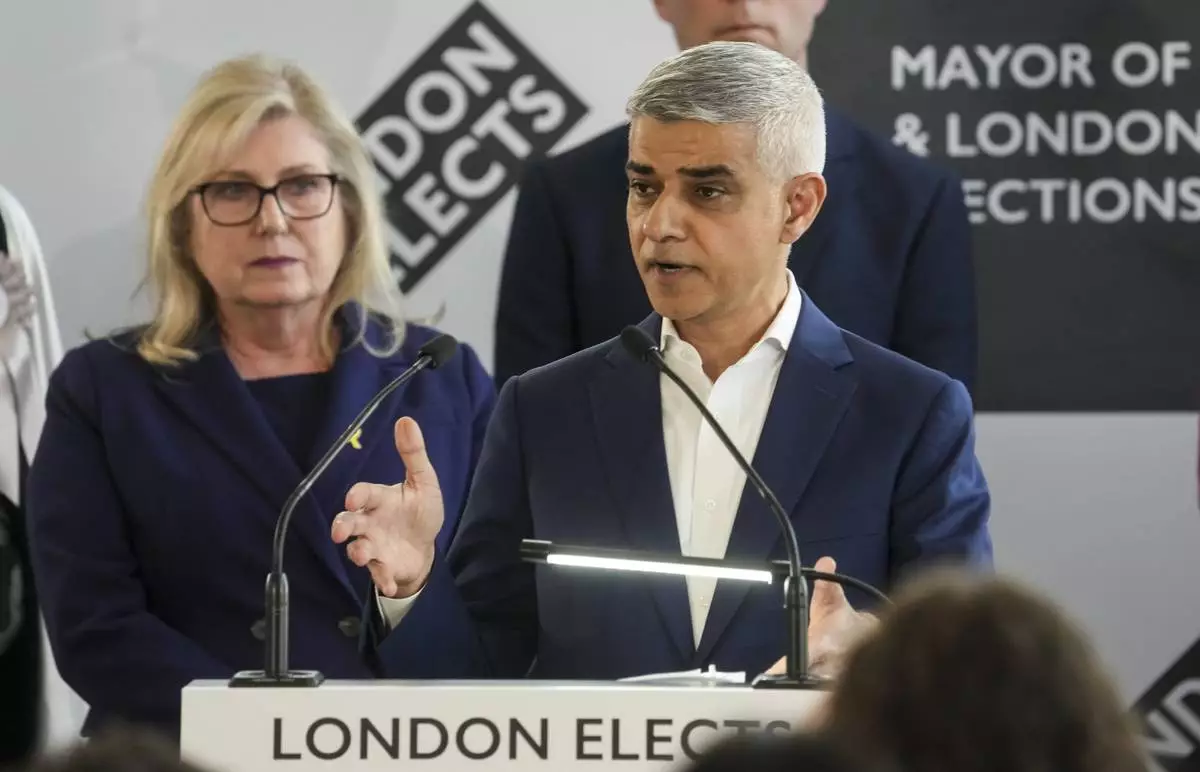
Labour's Sadiq Khan speaks after he is re-elected as the Mayor of London, at City Hall, London, Saturday May 4, 2024. ( Jeff Moore//PA via AP)

Sadiq Khan walks on to the stage as he is re-elected for a record third time as Mayor of London, following the counting of votes, at City Hall in London, Saturday, May 4, 2024. Khan, the Labour Party's Mayor of London, has romped to victory, securing a record third straight term at City Hall, on another hugely disappointing day for the U.K.'s governing Conservatives ahead of a looming general election. (AP Photo/Alastair Grant)
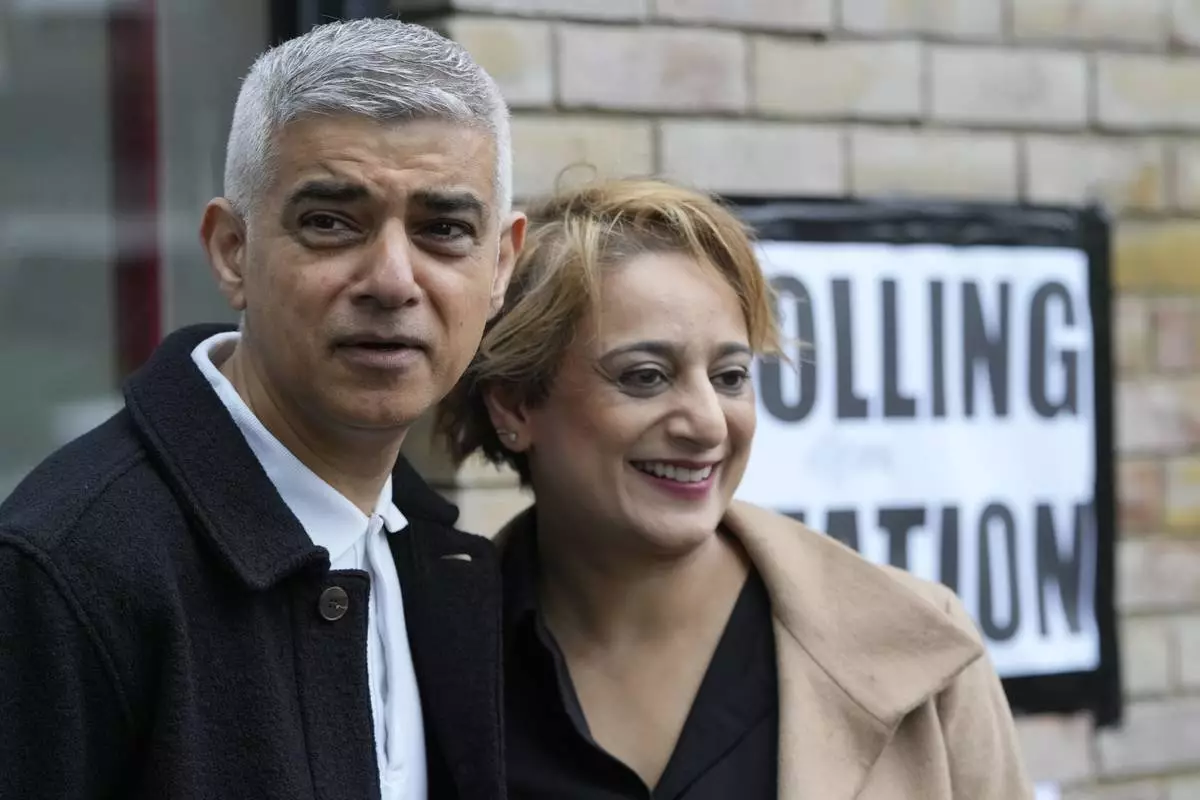
London Mayoral Labour Party candidate Sadiq Khan and his wife Saadiya Ahmed pose for the media as they arrive to vote in London, Thursday, May 2, 2024. Khan, is seeking re-election, and standing against 12 other candidates for the post of Mayor of London. There are other Mayoral elections in English cities and as well as local council elections. (AP Photo/Kin Cheung)
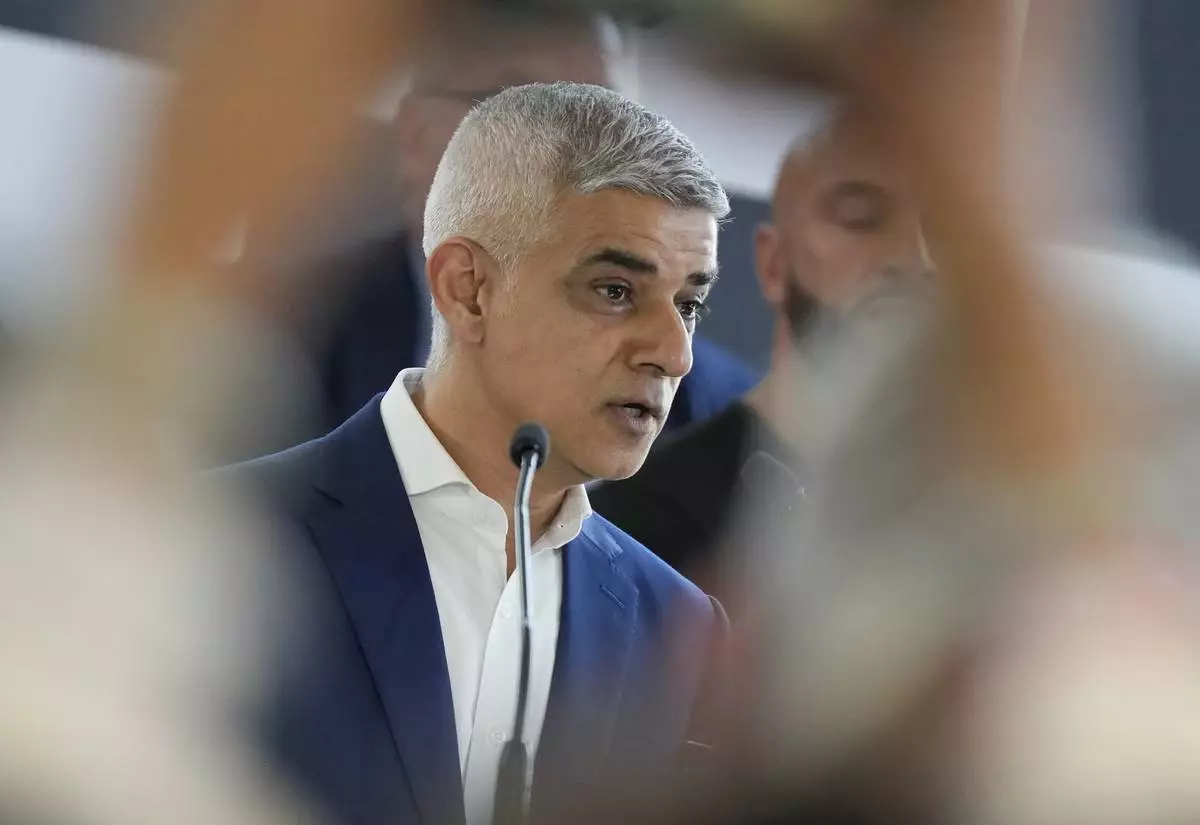
Sadiq Khan makes a speech after he is re-elected for a record third time as Mayor of London, following the counting of votes, at City Hall in London, Saturday, May 4, 2024. Khan, the Labour Party's Mayor of London, has romped to victory, securing a record third straight term at City Hall, on another hugely disappointing day for the U.K.'s governing Conservatives ahead of a looming general election. (AP Photo/Alastair Grant)










